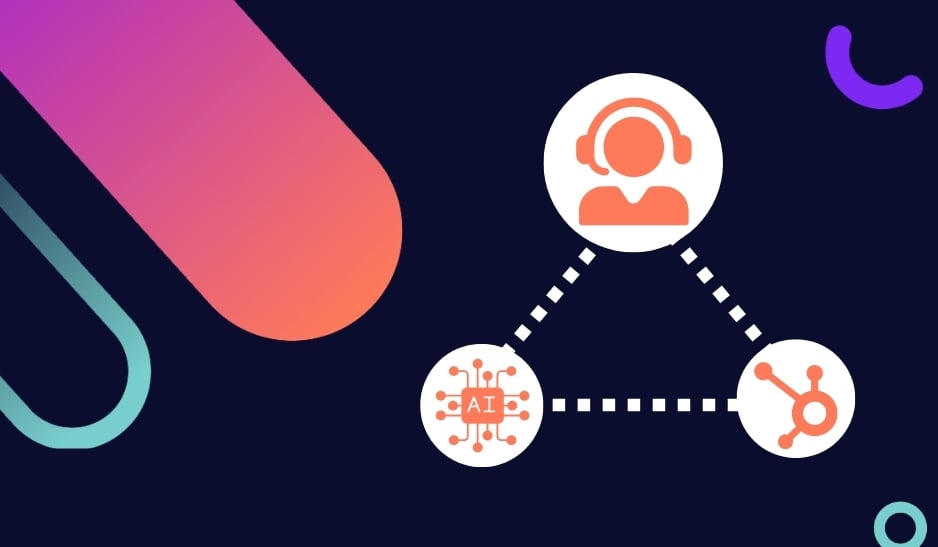

In an increasingly automated world, the companies that remember the importance of human touch – and use technology to amplify rather than replace it – will be the ones that truly stand out.
Remember when calling customer service meant waiting on hold for what felt like hours, only to explain your problem to three different people? Those days are rapidly becoming a distant memory. Artificial intelligence has quietly revolutionised how businesses handle customer interactions, but not in the way many of us initially feared.
Rather than replacing the human voice entirely, AI has become the perfect wingman for customer service teams. It's taken on the heavy lifting of routine tasks – those repetitive questions that had agents feeling like broken records – while freeing up real people to tackle the conversations that actually need a human brain and heart behind them. The result? Customers get faster answers, and when they do need to speak with someone, that person has the time and energy to truly help.
The magic isn't in choosing between AI or humans – it's in finding that sweet spot where they work together seamlessly. Think of AI as the incredibly efficient first responder that can instantly answer "What are your opening hours?" or "How do I reset my password?" Meanwhile, human agents step in when someone's frustrated about a delayed order or needs help navigating a complicated return.
This partnership approach recognises something important: customers don't actually care whether they're talking to AI or a human, as long as their problem gets solved quickly and effectively. What they do care about is feeling heard and valued, especially when things go wrong.
The proof is in the pudding, as they say. Companies implementing this balanced approach are seeing remarkable results that go far beyond typical metrics. Take the businesses using HubSpot's Service Hub – they're reporting that their human agents can resolve customer tickets 65% faster when AI provides smart reply suggestions. That's not just a number on a dashboard; that's 65% more time for agents to focus on building genuine relationships with customers.
One particularly clever implementation involved using AI to handle those late-night customer queries. Instead of customers hitting a dead end at 11 PM, they get immediate, helpful responses, with more complex issues seamlessly handed over to human agents the next morning. It's like having a 24/7 reception desk that never sleeps but knows exactly when to call in backup.
When businesses get this balance right, the results speak for themselves. Response times plummet, customer satisfaction scores climb, and perhaps most importantly, the human agents actually enjoy their work more. Instead of feeling like robots themselves, repeating the same answers dozens of times a day, they get to engage in meaningful problem-solving and relationship-building.
The 65% improvement in response times we mentioned earlier isn't just about speed – it's about respect for customers' time and the ripple effect that creates. Happy customers become loyal customers, and loyal customers become advocates who recommend your business to others.
The latest features coming from HubSpot's Service Hub showcase just how sophisticated this human-AI partnership is becoming. The Breeze Knowledge Base Agent acts like a thoughtful assistant, scanning through resolved tickets to spot gaps in your help documentation and drafting new articles for human review. It's not trying to replace human expertise – it's highlighting where that expertise is most needed.
Meanwhile, AI sentiment analysis helps route tickets more intelligently. If a customer sounds frustrated or upset, that ticket gets flagged for immediate human attention. It's like having an emotional intelligence radar that ensures no one falls through the cracks.
As AI continues to evolve, we're heading toward something even more exciting: hyper-personalised service that feels genuinely human despite being partially automated. AI will get better at understanding context, tone, and individual customer preferences, while human agents use these insights to create more meaningful connections.
The future isn't about AI taking over customer service – it's about AI making human customer service agents superhuman. Imagine agents who walk into every conversation already knowing the customer's history, preferences, and potential concerns, armed with suggested solutions but empowered to go off-script when empathy and creativity are needed.
The most successful businesses will be those that embrace this partnership model wholeheartedly. They'll use AI to eliminate friction and speed up routine interactions, while empowering their human teams to focus on what they do best: building trust, solving complex problems, and creating those moments of genuine connection that turn customers into fans.
In an increasingly automated world, the companies that remember the importance of human touch – and use technology to amplify rather than replace it – will be the ones that truly stand out. After all, at the end of the day, business is still about people serving people, even when AI is lending a helping hand.
Missed the ‘Humanising Your Help Desk in the Age of AI & Automation’ Beyond The Hub discussion between Gem Rugg-Gunn, Head of Expert Practices at BabelQuest and Caitlyn Cimikoski, Product Strategy and Marketing at HubSpot? Don’t worry you can now access it on-demand below, and follow BabelQuest on LinkedIn to never miss another Beyond The Hub discussion!
Stay Ahead with HubSpot’s Latest Innovations
Are you keeping up with HubSpot's ever-evolving features? Wondering how to leverage the newest tools to boost your marketing, sales, service, content, and operations? Look no further! Our exclusive monthly webinar series is here to guide you through the latest updates and help you maximise your HubSpot portal's potential.

